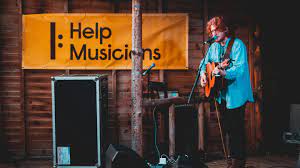In every corner of the globe, from the bustling streets of New York City to the serene villages of rural Africa, music pix é golpe resonates as a universal language that transcends cultural boundaries. It is an art form deeply ingrained in the human experience, serving as a medium for expression, communication, and connection. From ancient tribal chants to modern-day symphonies, music has evolved alongside humanity, reflecting our diverse emotions, beliefs, and aspirations.
The Power of Rhythm and Melody
At its core, music is a fusion of rhythm and melody, weaving intricate patterns that stimulate the senses and evoke profound emotions. From the primal beats of a drum circle to the complex harmonies of a classical orchestra, the power of music lies in its ability to captivate and move listeners on a visceral level.
Neuroscientists have long been fascinated by the effects of music on the human brain. Studies have shown that listening to music can trigger a cascade of neural responses, releasing neurotransmitters such as dopamine and serotonin that are associated with pleasure and emotional well-being. Whether it’s the soothing melodies of a lullaby or the adrenaline-pumping rhythms of a rock concert, music has the remarkable ability to influence our mood, mindset, and even our physical state.
A Cultural Mosaic
One of the most beautiful aspects of music is its ability to reflect the rich tapestry of human culture. Every society, from the most isolated tribes to the most cosmopolitan cities, has its own unique musical traditions, passed down through generations as a form of cultural heritage.
In Africa, the rhythmic drumming of traditional ceremonies echoes the heartbeat of the land, while in India, the intricate melodies of classical ragas transport listeners to a realm of spiritual transcendence. In Latin America, the passionate rhythms of salsa and samba embody the vibrant energy of the people, while in Europe, the symphonic masterpieces of composers like Mozart and Beethoven stand as timeless monuments to human creativity.
A Platform for Expression and Activism
Throughout history, music has also served as a powerful tool for social change and political activism. From the protest songs of the civil rights movement to the anthems of revolutionaries around the world, musicians have used their art to give voice to the marginalized and oppressed.
In the 1960s, artists like Bob Dylan and Joan Baez sang out against war and injustice, inspiring a generation to question authority and strive for a better world. In more recent times, hip-hop artists like Tupac Shakur and Kendrick Lamar have brought attention to issues of poverty, racism, and systemic inequality, sparking important conversations and igniting movements for social justice.
The Future of Music
As we venture further into the 21st century, the landscape of music continues to evolve with rapid advances in technology and globalization. The rise of streaming platforms and social media has democratized the music industry, allowing artists from all walks of life to share their creations with a global audience.
Innovations in music production software have also opened up new avenues for experimentation and creativity, blurring the lines between genres and pushing the boundaries of what is possible. From electronic dance music to experimental jazz fusion, the future of music promises to be as diverse and exciting as ever.

